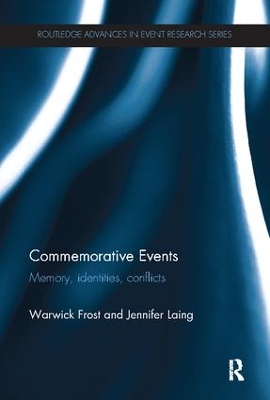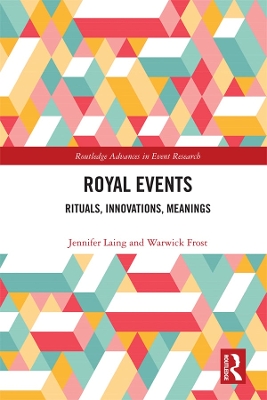Routledge Advances in Event Research
2 total works
Commemorative Events emphasise remembering. They are held on the anniversaries of significant past events, either annually or after significant time periods. Commemorative events provide fascinating insight into how societies see themselves, their heritage and their identity. These events however carry high propensity for controversy as memory and identity are highly subjective and other stakeholders hold different views of what should be commemorated and why.
This is the first book to provide an in - depth critical examination of commemorative events, particularly what they mean to societies and how they are used by governments as well as impacts on other stakeholders. The book fully explores these issues by reviewing all the major types of commemorative events including, nationhood or independence, wars, battles, famous people and cultural milestones from varying geographical regions and stakeholder perspectives. By doing so the book furthers understanding of these types of events in society as well as furthering knowledge of social and political uses and impacts of events.
This thought provoking volume will be valuable reading for students, researchers and academics interested in events.
Royal events such as coronations and jubilees encompass a wide spectrum of planned events involving monarchs and their families that are strategically designed to reinforce the role of royalty within social and political structures. Royal events may have a long heritage, but often involve traditions that are invented, revived or undergoing major innovations in response to changing times or to meet different purposes. The change from absolutism towards constitutional monarchies has seen a shift towards using royal events to promote national identity, community and inclusiveness. While the function and meaning of royal ritual and ceremony is a product of its particular political, economic and cultural context, conversely, royal events are often an influence on the broader milieu.
This book is the first to explore royal events within the context of Events Studies, and takes an historical approach, examining the development of royal events through different periods. It starts with four broad pre-modern eras, namely Classical, Byzantine, the Dark Ages and the Medieval Period, then moves through to the early modern dynasties such as the Tudors, Stuarts, Georgians and Bourbons and on to contemporary times, incorporating the Victorian and Edwardian eras and the current reign of Elizabeth II, including the legacy of Diana and an analysis of current issues affecting royal events. Themes emphasised throughout include the institutional dynamism of royalty, the invention of tradition, the ritual structure of events, the impact of the media and the influence of individual tastemakers.
This multidisciplinary work will appeal to postgraduate students and academics from a wide variety of disciplines, including cultural studies, history, tourism, events and sociology.

